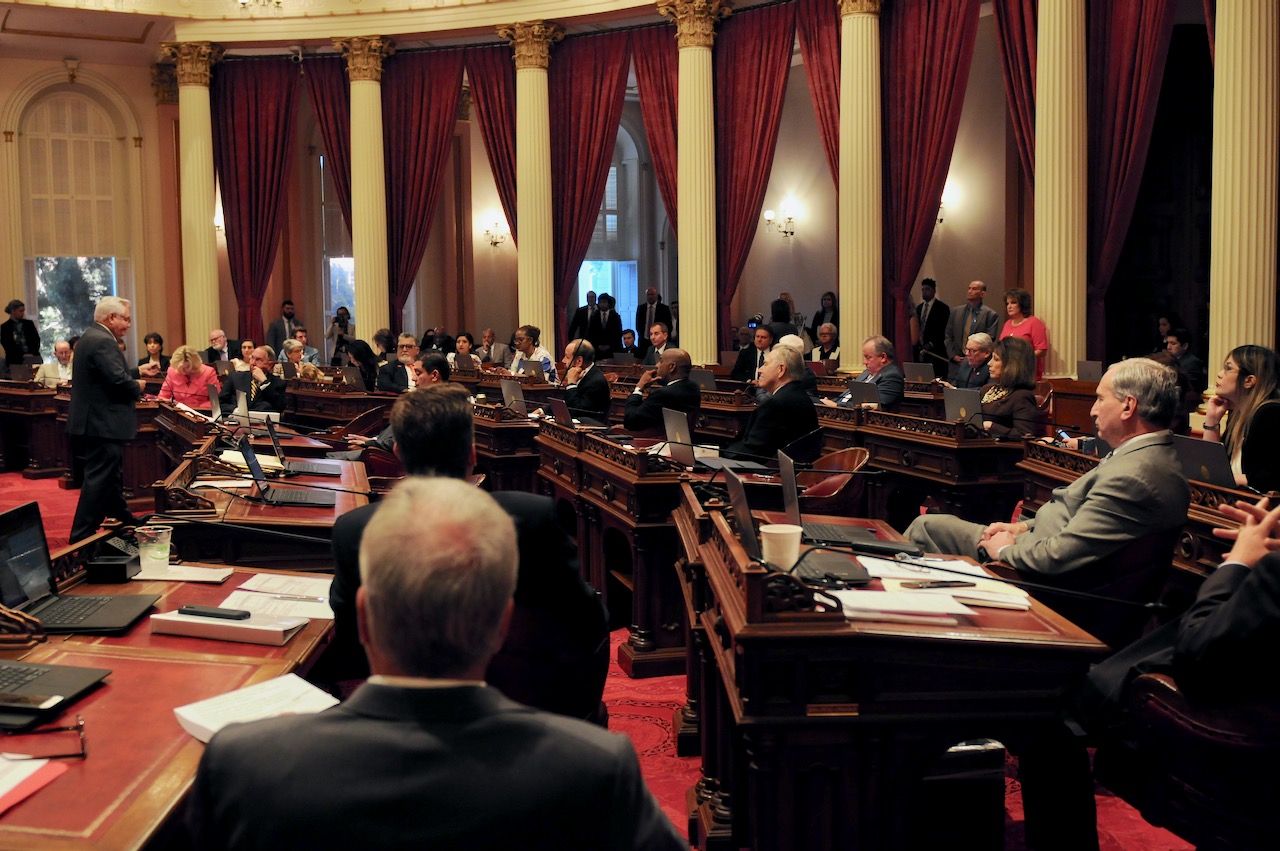
Human brain made out of printed circuit board. (Photo: Public Domain)
States Play a Critical Role in America’s AI Success – But They Need to Get It Right
California’s regulatory overreach risks handing China an advantage in the global tech race
By Doug Kelly, September 21, 2024 8:20 am
The United States and China are in a high-stakes competition for global technology leadership. Ensuring that America wins this race between the two geopolitical power centers requires policies at the federal and state levels that help accelerate, rather than hamstring, AI innovation.
In this context, New York and California offer two vastly different approaches.
California, long the cradle of technological innovation, has birthed ideas that revolutionized industries and empowered generations. Moreover, the Golden State, as the world’s fifth-largest economy, holds a unique position of power and prestige. But SB 1047, now on Governor Gavin Newsom’s desk awaiting signature, threatens to turn the state’s innovation cradle into an AI graveyard. This bill could stifle innovation by imposing heavy liabilities on developers, slowing open-source AI approaches, and creating uncertainty that deters investment. Such regulatory overreach risks handing China an advantage in the global tech race while harming the state’s reputation as a domestic and international technological leader.
In stark contrast, New York’s Empire AI initiative, championed by Governor Kathy Hochul, offers a blueprint for fostering investments in AI innovation and infrastructure. This initiative aims to accelerate AI development and grow the economy through public-private partnerships, harnessing talent within academic institutions, and fostering an entrepreneurial spirit. The investments in AI development through the Empire AI initiative provide a robust model for how government policy can help catalyze and accelerate innovation.
However, there is much more that policymakers can do in every state. Establishing regulatory sandboxes for safe experimentation would allow innovators to test and develop new AI technologies without the immediate threat of overregulation. Boosting incentives for AI integration can drive broader adoption across various sectors, enhancing competitiveness and productivity. Expanding research and development (R&D) funding will ensure that we remain at the forefront of AI advancements. Investing in critical infrastructure, such as high-speed internet, robust cybersecurity, and adequate power generation, is essential to support the growing demands of AI and other future technologies. Additionally, strengthening Science, Technology, Engineering, and Mathematics (STEM) education will develop future pipelines of tech talent, guaranteeing that the next generation is well-equipped to continue leading in AI innovation.
This comprehensive approach not only counters the top-down practices of our authoritarian adversaries but also showcases an alternative vision of technology’s role in society – one that uplifts rather than oppresses.
The stakes in the global AI race are high. Losing our edge to authoritarian adversaries, namely China, could have devastating and far-reaching consequences, not just for American technological leadership but for the advancement of democratic values around the globe. China is already misusing AI to tighten the grip of its surveillance state, focusing on censorship and social control instead of harnessing AI’s potential for social good. Beijing is all in when it comes to winning the tech race, investing $1.4 trillion to build future technologies, and mobilizing the world’s largest hacking effort to steal $500 billion in tech and trade secrets from the United States each year.
American leadership in AI is not merely about who owns the technology but also about helping set global standards for how it is used to advance freedom, democracy, expression, and human rights. Our approach to AI policy will determine whether America and the Western world will continue to lead or fall behind authoritative states.
The future of innovation, values, security, and global competitive edge depends on getting AI policy right. States like California and others considering AI regulations should look to New York’s Empire AI initiative as a model for fostering AI growth.
Fifty-five years ago, America landed a man on the moon, cementing our global leadership in technology by winning the space race against an authoritarian challenger. Similarly, AI can be America’s modern-day moonshot moment, ensuring a decades-long advantage in national security, economic prosperity, and global influence. However, suppose short-sighted legislation such as SB 1047 becomes law. In that case, it will undermine our innovators and could hand authoritarian countries with values antithetical to America’s the reins of global technology leadership.
We can’t allow that to happen.
- States Play a Critical Role in America’s AI Success – But They Need to Get It Right - September 21, 2024




